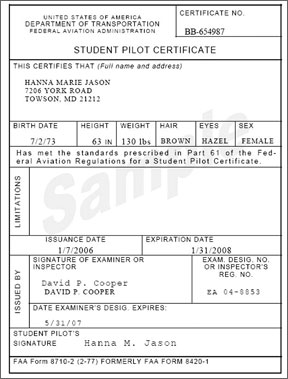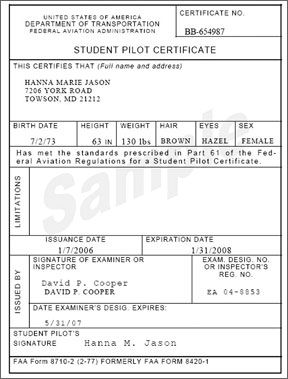Its been more than six years since the FAA established the sport pilot certificate. Along with the rules on what a sport pilot can and cannot do, there was something noticeably missing: Any requirement for a sport pilot to obtain or hold an FAA medical certificate, as long as he or she has a U.S. drivers license (and 288 had not been denied a medical). At the same time, the new rules allowed anyone with a higher certificate to fly a light sport aircraft without a current medical but with a current drivers license. Over the six-year period, there have been hundreds of accidents involving medical incapacitation of sport pilots. What? Wait…thats not true. In fact, there have been numerous accidents and incidents involving sport pilots and/or light sport aircraft but none of them involve medical incapacitation. In fact, we cant find any example of an accident or incident resulting from a sport pilots medical incapacity. Period. And we looked. Searching the NTSBs database for airplane accidents involving the word “incapacitation” produced 39 results between September 1, 2004, and November 2010. Of those 39, the word “incapacitation” only appears as the report raises and then discards the idea the pilot was incapacitated. Another resource, a 21-page summary of “sport and recreational” accidents maintained by the FAA and updated as recently as May 2010, did not include “incapacitation.” Meanwhile, a 2004 study published by the FAAs Office of Aerospace Medicine looked at in-flight medical incapacitation of U.S. airline pilots for the period 1993-1998. While noting “[t]here is a lack of high-quality data” on the subject, the report cited a separate study concluding a 0.074 percent probability of in-flight incapacitation. Thats pretty low, and includes pilots with medical certificates. The conclusion should not be some medical certification isnt needed. Instead its this: A medical certificate alone isnt a guarantee against pilot incapacitation, and a drivers license is a good, inexpensive indicator of fitness to serve as pilot in command. What to do? Well, for starters, theres a formal petition before the FAA to eliminate requirements for a third-class medical before serving as pilot in command of an aircraft with a maximum gross takeoff weight not exceeding 6000 pounds and operated under Part 91. This is the real deal: a formal petition for rulemaking not unlike the one the U.S. Environmental Protection Agency is using to question whether 100LL avgas is a public health hazard. Its something we all should be supporting. To do so, visit www.regulations.gov, enter the docket number- FAA-2009-0481-into the “keyword or ID” search window, read the petition and leave your comments. -Jeb Burnside




